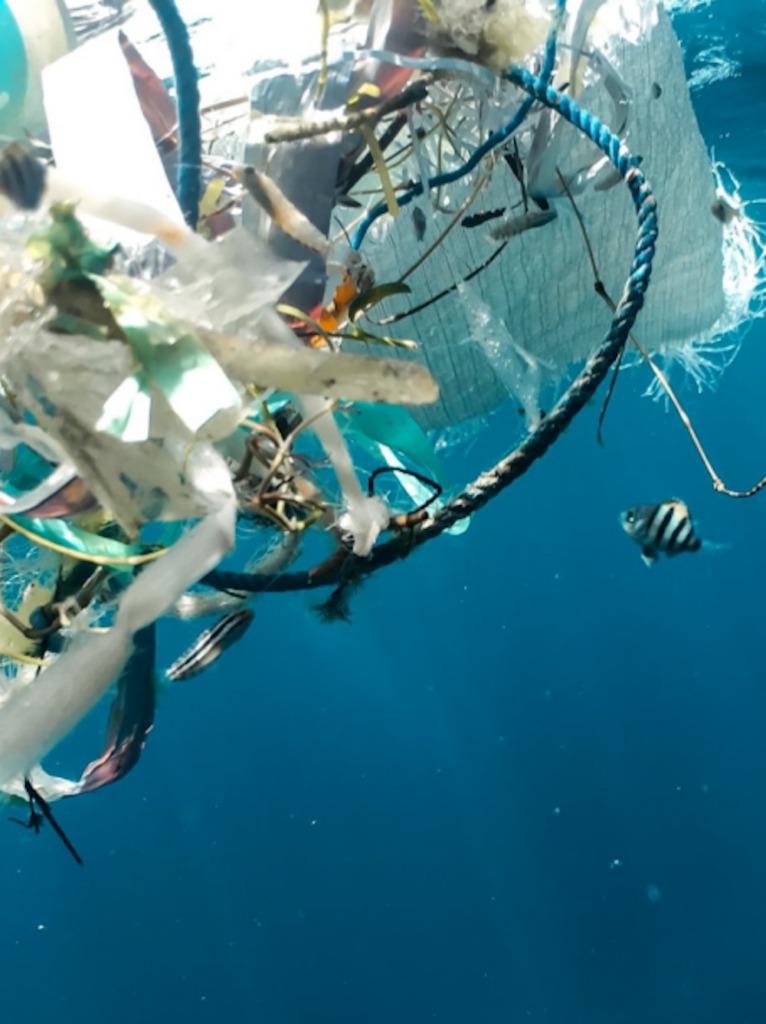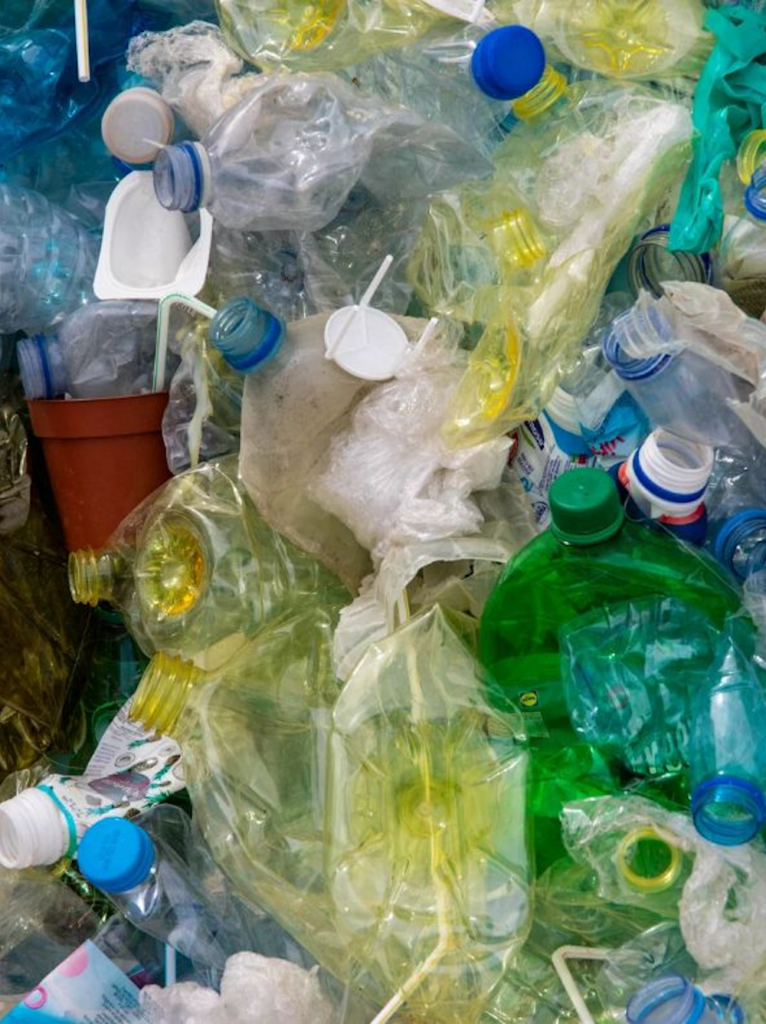Annual Report 2023
Download the 2023 financial reportMarine Litter.
In 2023, the fight against plastic pollution remained a crucial priority for Surfrider, underlining the urgent need to act in the face of this growing threat to our oceans and marine biodiversity.
Against this backdrop, the year was punctuated by a number of significant events.
As early as January, the legal action taken against the Danone group for non-compliance with its duty of care with regard to plastics highlighted the need for companies to take greater responsibility for reducing plastic production.
The holding of the 2nd session of international negotiations on the treaty in Paris in the spring, which was closely monitored by our advocacy team, further underlined the importance of global cooperation to curb this environmental crisis.
Finally, one year after having called on nine major French food companies, the NGO has published a report denouncing the persistent strategies for maintaining the use of plastic. The report highlights the importance of de-plastification and the need for greater action to really reduce the production and use of plastic.
Significant advances in biomedia
Surfrider Foundation’s commitment and actions on the issue of biomedia reached a new milestone this year, marked by a series of positive advances.
→ Citizen mobilisation on a European scale has been facilitated by the online launch of a new pollution testimony platform, available in 3 languages (French, English and Spanish). These testimonies are essential and constitute the source of our expertise.
→ Training volunteers at workshops held during Chapter Days, which took place in the autumn, enabled us to pass on the latest news on biomedia across Europe and provide them with tools to act effectively at local level.
→ In addition to noting the scale of pollution, Surfrider has published a guide to good practice, aimed at wastewater treatment professionals and designed to limit biomedia losses. Some improvements are already underway.
Surfrider’s involvement in working groups on marine waste at European level (OSPAR), and the awareness-raising campaigns carried out with MEPs, have alerted European decision-makers to the importance of taking effective measures to combat this form of pollution.
The introduction of regulations on the use of biomedias during the revision of the Urban Waste Water Directive (UWWWD – final vote in 04/24) underlines the importance of Surfrider’s actions and demonstrates the recognition of our expertise by the institutions.
This is a major step forward in the fight against this recurring form of pollution.
With this multi-year funding, Surfrider is now able to continue its efforts to combat biomedia pollution by supporting wastewater treatment professionals and implementing best practices.
These achievements testify to Surfrider Foundation’s ongoing commitment to the fight against biomedia pollution and its determination to make progress in this essential cause for the preservation of the Ocean.
Read the article : Why are biomedia an environmental scourge?

The fight against GPI pollution continues
The year 2023 witnessed Surfrider Foundation’s exceptional commitment and concrete actions in the fight against industrial plastic granulate (IPG) pollution.
Our organisation has been active on a number of levels, including organising an influential conference at the European Parliament, bringing together leading scientists, passionate activists and local and national decision-makers. This conference played a crucial role in raising awareness among a wide range of stakeholders of the disastrous consequences of IPMs for the environment.
To support this awareness, the exhibition “Making the invisible visible”, highlighting the presence of microplastics in the ocean, was presented at UNESCO headquarters in Paris and then at the European Parliament during Ocean Week. It highlighted this often overlooked form of pollution, drawing the attention of the public and the media to a critical problem.
By mobilising various levers for action, from exhibitions to advocacy, we were able to highlight the urgent need to regulate the production, transport and use of IPGs to MEPs. These efforts were finally crowned with success in October 2023, when the European Commission presented a proposal aimed at significantly reducing the pollution caused by pellets.
A key step in the process of putting the Ocean at the heart of European legislative discussions.
Read the article : Ecaussinnes (Belgium): Surfrider Foundation tackles Industrial Plastic Granules


The challenges in the fight against pollution from plastic packaging
Surfrider Foundation’s resolute commitment to the fight against pollution caused by plastic packaging has not wavered over the past year. This was demonstrated by its active participation in the call to mobilise citizens in the run-up to the vote on the proposed PPWR (Packaging and Packaging Waste Reduction) text.
Despite its efforts and those of other stakeholders keen to reduce the impact of waste on the environment, the power of the packaging and fast-food lobbies unfortunately resulted in the proposal being weakened during the vote in Parliament. However, this experience strengthened the coalition’s determination to continue the fight.
The initial text, although amended, outlines a promising future for reducing packaging and waste. It focuses on crucial measures such as the ban on single-use packaging (SUPPackages) in the catering sector (HORECA) for on-site consumption, and sets ambitious targets for the reuse of packaging.
Despite the challenges faced, Surfrider Foundation remains steadfast in its commitment to promoting policies to reduce the use of plastic packaging, encouraging the adoption of more sustainable practices such as deposits.
Read the article : Plastic: what’s on our mind in November ?

One year on: companies make timid progress in the deplastification campaign
In December 2022, Surfrider, in collaboration with ClientEarth and Zero Waste France, gave nine major food and retail companies formal notice to reduce their use of plastic.
At the end of 2023, a year later, their progress has been analysed and the results are far from satisfactory.
Despite the urgent need to begin the de-plasticization process, the companies concerned seem reluctant to make a full commitment.
Surfrider’s “Plastic Forever” report highlights this critical situation and calls for immediate action.
Although awareness of the risks associated with the excessive use of plastic seems to have increased among most of these players, some companies are still lagging behind, not fully understanding the risks or failing to implement effective measures to mitigate them.
Read the article : Deplastification: companies failing to overcome their dependence on plastic


Towards a future without microplastics in cosmetics
Thanks to relentless efforts and a collaborative strategy, Surfrider has marked a major turning point in the fight against microplastics in cosmetic products.
The culmination of these efforts was the plenary vote on legislation to ban intentionally added microplastics in cosmetics.
This success was the result of remarkable groundwork by Surfrider’s advocacy officers, who joined forces with other NGOs and associations. Together, they formed a powerful coalition, amplifying the scope of their demands and recommendations.
An important milestone in this campaign was the drafting and sending of a letter to MEPs, co-signed by several brands of microplastic-free cosmetics. The aim of this initiative was to highlight the urgent need to take a stand on this crucial issue.
Although the text adopted to restrict microplastics in cosmetics did not meet all Surfrider’s expectations, it represents a significant first step. This breakthrough demonstrates Surfrider’s ability to catalyse change and influence environmental policies at European level.
Read the article : Ban on microplastics in cosmetics postponed again

Rigorous monitoring of negotiations on the international treaty on plastic pollution
The year 2023 was marked by two crucial negotiating sessions under the International Treaty against Plastic Pollution in Paris at the end of May/beginning of June and in Nairobi in November.
On both occasions, Surfrider published a position paper calling for the adoption of legally binding measures that address the entire life cycle of plastic.
Despite these challenges, Surfrider Foundation remains committed and will closely follow the next stages of the treaty, which will take place in Canada in April 2024, with final adoption expected by early 2025.
Read the article : Towards a 75% reduction in plastic production by 2050: Surfrider Foundation calls for an ambitious treaty on plastic pollution



